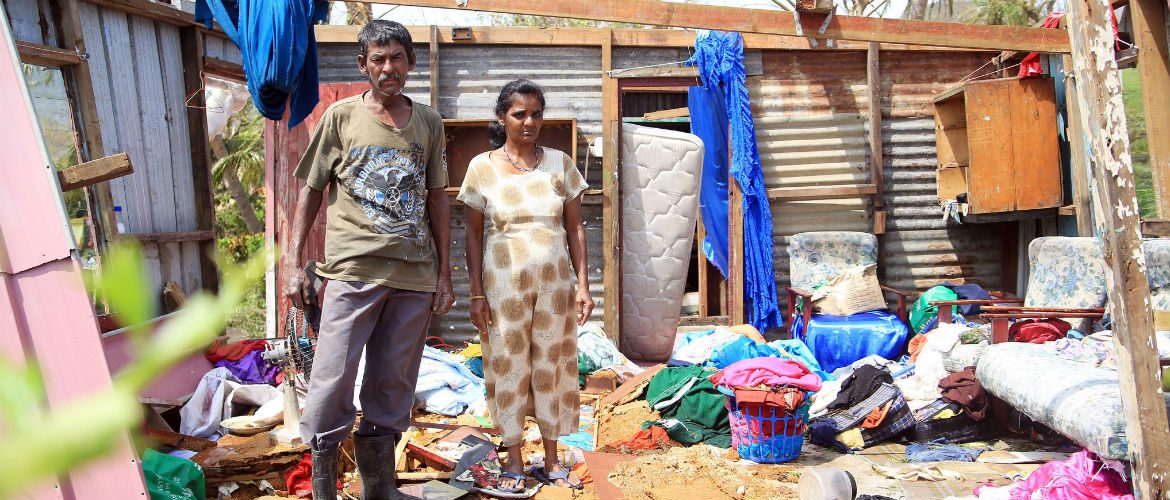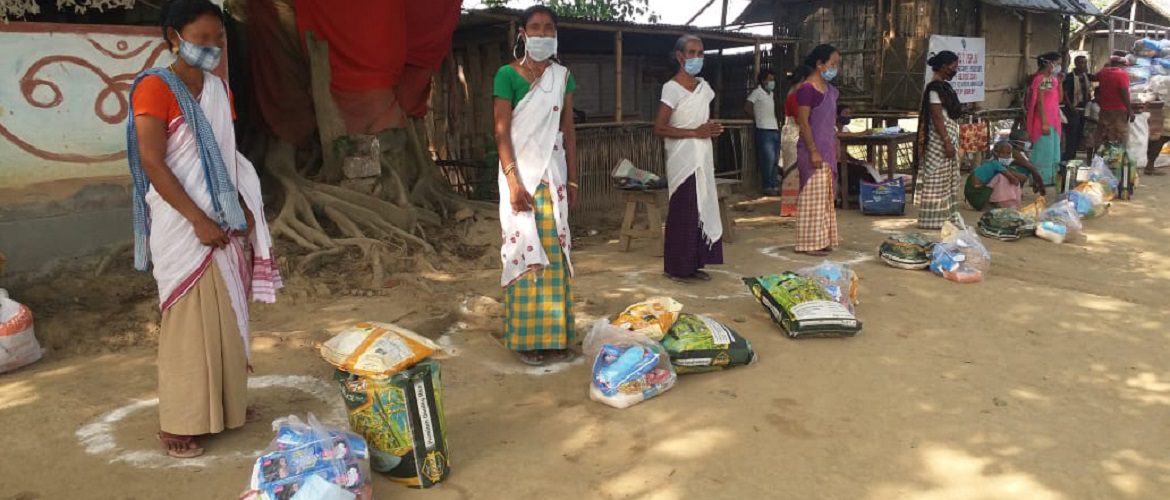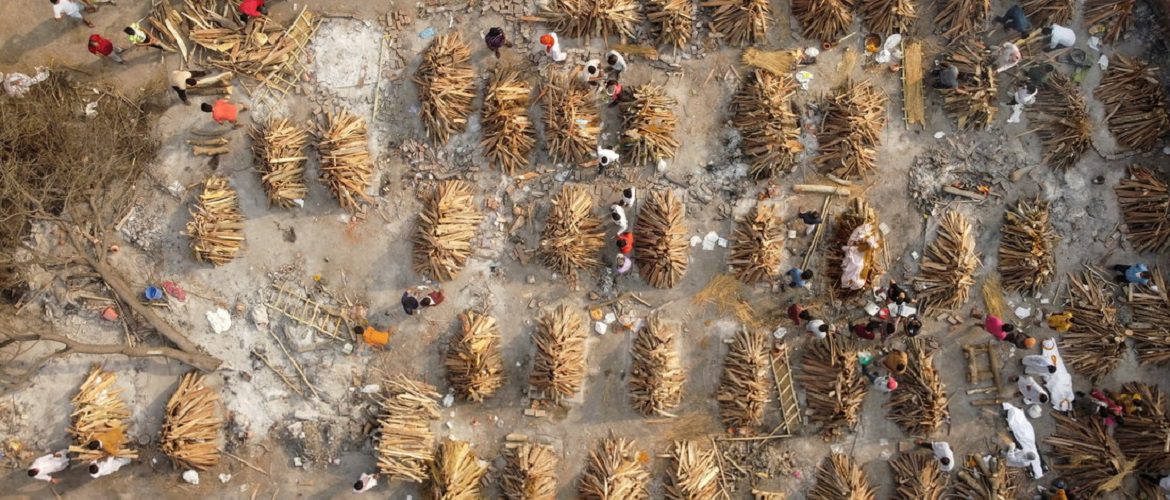Tropical Cyclone Winston was a powerful Category 5 storm — the biggest to make landfall in Fiji’s history.
The destructive force of the storm has left at least 42 people dead, whole villages destroyed and 117 schools damaged or wiped out.
What you need to know:
- Cyclone Winston hit the island nation packing wind gusts at its centre of up to 325kph, with average winds of 230kph. Previously the strongest cyclone to make direct landfall on Viti Levu was Cyclone Nigel in 1985, with 190kph winds.
- Early reports indicate that some communities in the direct path of Cyclone Winston have experienced 80–100% damage.
- The areas worst hit include the Lomaiviti province (including Koro Island) and towns in the north of Fiji’s main island Viti Levu between Lautoka and Rakiraki. These towns were in the direct path of the cyclone’s eye and there are reports of whole villages destroyed, with only one or two buildings still standing.
- Almost 30,000 people are sheltering in more than 700 evacuation centres around the country. An estimated 350,000 people live within the ‘very destructive’ zone 50 kilometres either side of the path of the eye of the storm.
- There are severed communication lines, power outages and limited transport options to reach the outlying islands due to damaged roads and jetties. The full extent of the damage is yet to be known.
- The Government of Fiji has warned that thousands of houses across Fiji may need to be demolished as a result of damage and present significant shelter challenges over the months ahead.
Now, the greatest worry is for the people living in crowded evacuation centres. There is urgent need to ensure improved water and sanitation conditions to prevent the outbreak of waterborne disease.
What is Oxfam doing?
Oxfam, other aid organisations and local organisations are working together with the Government of Fiji to implement a response as effectively as possible.
Oxfam’s first priority was to bring clean water. Survivors now face secondary threats like the spread of disease. Clean water for drinking, cooking and hand washing is essential for the prevention of waterborne disease after a disaster.
Two portable water filters arrived in Suva on Wednesday, along with an Oxfam water and sanitation specialist. Two more water filters will arrive this weekend. Oxfam will be assisting with the delivery of water and hygiene kits to evacuation centres.
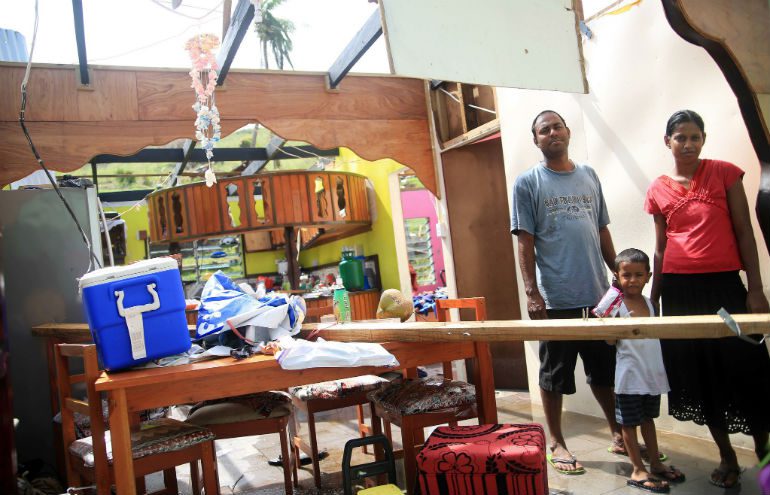
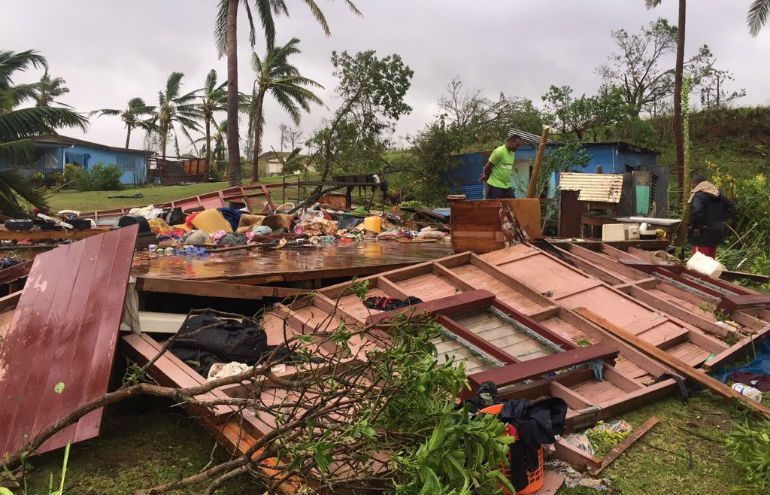
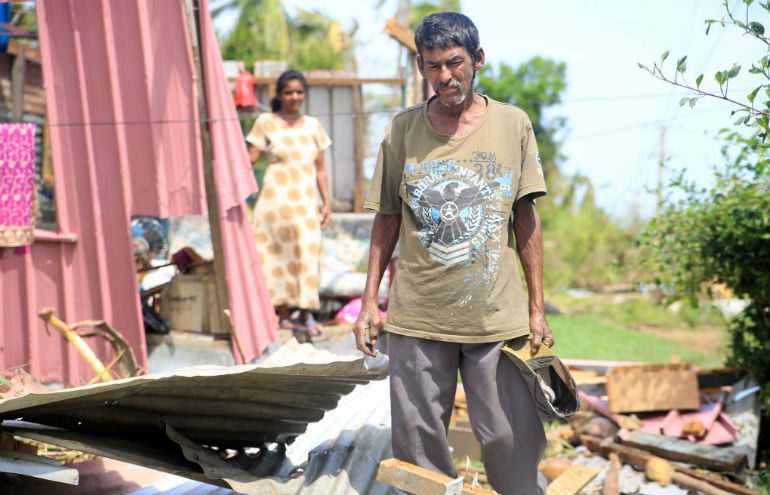
Oxfam has expertise in water supply, sanitation and hygiene, emergency food security and restoring livelihoods. As power is restored and roads are cleared, we are able to see what the critical needs are.
As the the scale of devastation becomes more apparent, Oxfam is scaling up its emergency response. We are deploying response staff including water and sanitation engineers and logistics experts.
This is an unprecedented emergency in Fiji. Please donate to the Fiji Cyclone Appeal to help deliver urgently needed aid to the people who need it the most.
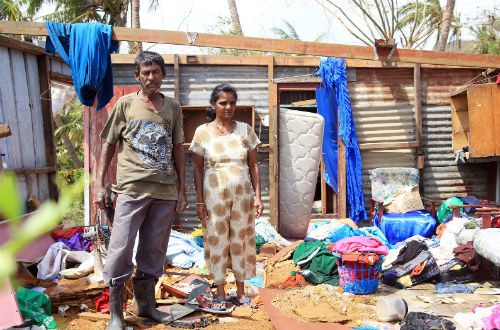
Help provide aid to the people of Fiji
Your donation can help deliver essential items in the aftermath of disaster like clean water and sanitation
